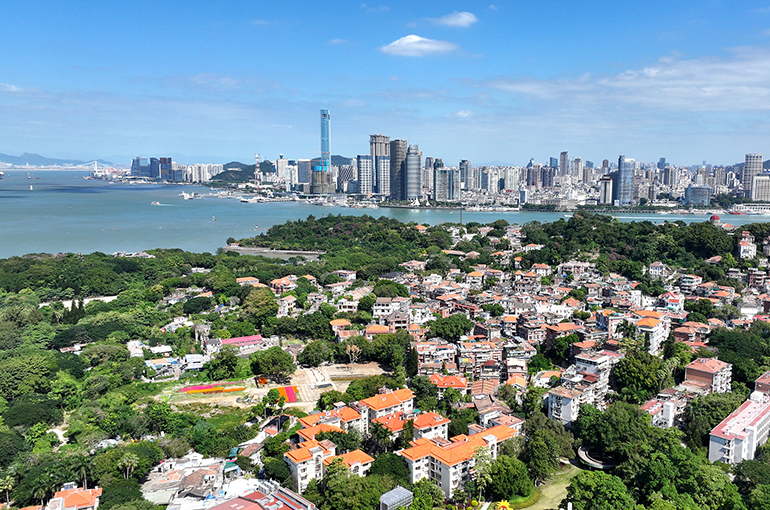 China Adds Nine Pilot Cities to Expand Service Sector Opening-Up
China Adds Nine Pilot Cities to Expand Service Sector Opening-Up(Yicai) April 22 -- China continues to promote the further opening-up of its service sector despite rising global trade protectionism by adding nine cities, including the first-tier city of Shenzhen in southern Guangdong province, to a relevant pilot program.
Most new additions are eastern coastal cities: Ningbo in Zhejiang province, Qingdao in Shandong province, Dalian in Liaoning province, and Xiamen and Fuzhou in Fujian province, according to a work plan released by the Ministry of Commerce on April 18. Suzhou in Jiangsu province, which neighbors Shanghai, Hefei in eastern Anhui province, and Xi'an in western Shaanxi province, were also included.
Since 2015, China has been promoting the opening-up of the service sector, with Beijing as the first pilot city, followed by the country's other three municipalities of Shanghai, Tianjin, and Chongqing, as well as southern Hainan province in 2021. The cities of Guangzhou, Hangzhou, Chengdu, Nanjing, Shenyang, and Wuhan were added last year.
Since the launch of the pilot program, China has continued to relax the entry threshold for foreign investment in the service sector, improve relevant rules, standards, and management systems, create a market-oriented, law-based, and international business environment, and provide a stable and open policy environment for foreign businesses to invest and operate in the country, Ling Ji, vice minister of commerce, said yesterday.
In addition to expanding the program's scope, the new plan also proposes 155 pilot tasks covering a variety of fields, including telecommunication services, the digital industry, medical and health care, finance, as well as commerce, culture, and tourism.
Regarding telecommunication services, the plan proposes supporting overseas telecom operators in conducting local internet virtual private network business by setting up joint ventures in China, with the foreign investors holding no more than 50 percent of the JVs. It also proposes removing the restrictions on foreign shareholdings in app stores and internet access services.
Regarding medical and health care, the plan proposes to support qualified foreign doctors in opening clinics in China, encourage overseas organizations or individuals to donate funds to set up local non-profit medical and elderly care institutions, and further expand the opening-up of the biotechnology field.
With China's access restrictions on foreign investment in the manufacturing sector having been removed, expanding the opening-up of the service sector and promoting the integration of manufacturing and service is conducive to further enhancing the country's overall competitiveness, Zhang Wei, vice president of the Chinese Academy of International Trade and Economic Cooperation, said in a recent interview with China Central Television.
Editors: Dou Shicong, Martin Kadiev